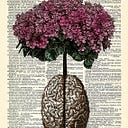Hardly; for Kant, a commitment to the moral life is crucial. When he sets the limits of theoretical reason by introducing the noumenon, he does so in order to stress the primacy of practical reason. The ‘first postulate of practical reason’, he claims, is that we are noumenal beings whose freedom is not restricted by the causal laws of nature. Our moral behavior is predicated on this postulate, and it can only be made when we concede a certain limit to the powers of theoretical reason (that is, the ability to understand our subjective experience as a series of causal relations). In other words: Kant critiques pure reason in order to leave room for the practical reason of morality.
1 min readMar 2, 2019
